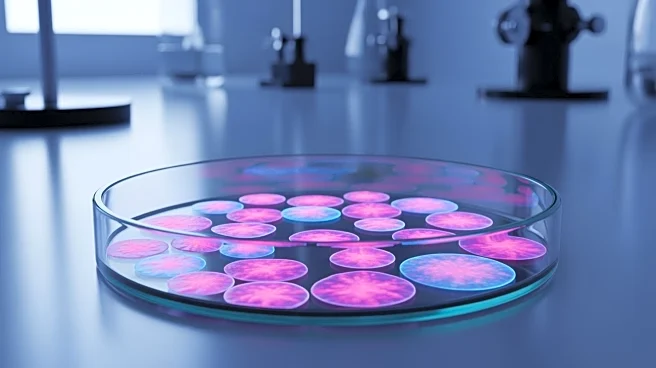What's Happening?
Researchers at Kyoto University have developed a method to manufacture platelet-producing cells, known as megakaryocytes, from stem cells. This innovation addresses challenges in platelet transfusions, such as limited availability, short shelf life, and
immune response risks. The team, led by Koji Eto, uses genetic engineering to convert induced pluripotent stem cells (iPSCs) into megakaryocytes, allowing for patient-specific platelet production. The study, published in Stem Cell Reports, highlights the role of the protein KAT7 in controlling megakaryocyte growth and platelet production. High KAT7 levels lead to rapid cell division and increased platelet output, while low levels result in DNA damage and reduced production.
Why It's Important?
This breakthrough has significant implications for medical treatments involving platelet transfusions. By enabling patient-specific platelet production, the method reduces the risk of immune rejection and ensures a consistent supply. The ability to monitor KAT7 levels for quality control could enhance clinical-scale production, making platelet transfusions more reliable and accessible. This advancement could benefit patients with conditions like leukemia, sepsis, and bone marrow disease, improving their treatment outcomes and quality of life.
Beyond the Headlines
The development of this method represents a shift towards personalized medicine, where treatments are tailored to individual patients. It also highlights the potential of stem cell technology in addressing complex medical challenges. As research progresses, this approach could pave the way for other cell-based therapies, transforming how diseases are treated and managed.
















